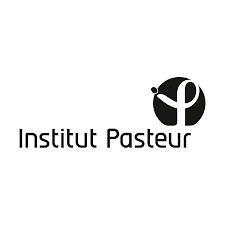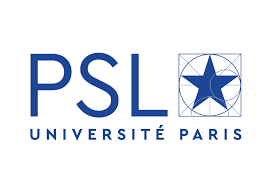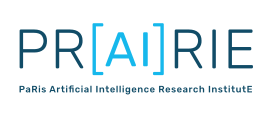Loading...
Bienvenue sur la collection des archives ouvertes HAL du PaRis AI Research InstitutE
Le plan 3AI
Le Prairie Institute (PaRis AI Research InstitutE) est l'un des quatre instituts français d'intelligence artificielle, créés dans le cadre de l'initiative nationale française sur l'IA annoncée par le président Emmanuel Macron le 29 mai 2018.
La création d’un petit nombre d’instituts de recherche interdisciplinaires en IA (ou «3IA» pour «Instituts Interdisciplinaires d’Intelligence Artificielle») a constitué une part importante de ce plan ambitieux, doté d’un budget total d’un milliard d’euros. Après un appel à participation ouvert en juillet 2018 et deux tours d'examen par un comité scientifique international, les projets de Grenoble, Nice, Paris et Toulouse ont officiellement reçu le label 3IA le 24 avril 2019, pour un budget total de 75 millions d'euros.
Pour en savoir plus sur PaRis AI Research InstitutE, consultez son site web.
Le Prairie Institute (PaRis AI Research InstitutE) est l'un des quatre instituts français d'intelligence artificielle, créés dans le cadre de l'initiative nationale française sur l'IA annoncée par le président Emmanuel Macron le 29 mai 2018.
La création d’un petit nombre d’instituts de recherche interdisciplinaires en IA (ou «3IA» pour «Instituts Interdisciplinaires d’Intelligence Artificielle») a constitué une part importante de ce plan ambitieux, doté d’un budget total d’un milliard d’euros. Après un appel à participation ouvert en juillet 2018 et deux tours d'examen par un comité scientifique international, les projets de Grenoble, Nice, Paris et Toulouse ont officiellement reçu le label 3IA le 24 avril 2019, pour un budget total de 75 millions d'euros.
Pour en savoir plus sur PaRis AI Research InstitutE, consultez son site web.
Nombre de dépôts en texte intégral
698
Nombre de notices
698
Derniers dépôts
-
Niyati Bafna, Cristina España-Bonet, Josef van Genabith, Benoît Sagot, Rachel Bawden. When your Cousin has the Right Connections: Unsupervised Bilingual Lexicon Induction for Related Data-Imbalanced Languages. LREC-Coling 2024 - Joint International Conference on Computational Linguistics, Language Resources and Evaluation, May 2024, Torino, Italy. ⟨hal-04523029⟩
-
-
-
-
-
Sophie Loizillon, Simona Bottani, Aurélien Maire, Sebastian Ströer, Didier Dormont, et al.. Automatic motion artefact detection in brain T1-weighted magnetic resonance images from a clinical data warehouse using synthetic data. Medical Image Analysis, 2024, 93, pp.103073. ⟨10.1016/j.media.2023.103073⟩. ⟨hal-03910451v2⟩
-
Mots clés
Poetry generation
Electronic health records
PQA
HIV
Clustering
Multiple Sclerosis
Data visualization
Direct access
Machine Learning
MRI
Image synthesis
Genomics
Weakly-supervised learning
Breast cancer
Optimization
Riemannian geometry
Prediction
French
Adaptation
Machine learning
Literature
Brain
Zero-Shot Learning
Representation learning
Image quality assessment
Alzheimer's disease
Segmentation
Variational autoencoder
Human-in-the-loop
Curvature penalization
Action recognition
Language acquisition
Huntington's disease
Evaluation
Deep Learning
Classification
Computational pathology
Neural networks
Portraits
Alzheimer’s disease
Language Model
FOS Mathematics
Stochastic optimization
Portrait quality assessment
Fluorescence microscopy
Cross-validation
Variational inference
Validation
Bias
Alzheimer's Disease
Wavelets
Mixture models
Medical imaging
Longitudinal data
Deep learning
Self-supervised learning
Artificial intelligence
Machine translation
Large language models
Online learning
Whole slide images
Longitudinal study
Magnetic resonance imaging
Optimization and Control mathOC
Computational modeling
Robustness
Cancer
Kernel methods
ADNI
Kalman filter
Microscopy
Computational Pathology
Multiple sclerosis
Ensemble learning
Hippocampus
ASPM
BERT
Computer vision
First-order methods
Exoplanet detection
Reinforcement learning
Robotics
Functional connectivity
Dimensionality reduction
Graph alignment
Neuroimaging
Computer Vision
Interpretability
Image processing
Disease progression modeling
Loss function
Natural language processing
Brain MRI
PET
Reproducibility
Object detection
Dementia
Inverse problems
Deep generative models
Data imputation
 |
 |
 |
 |
|
